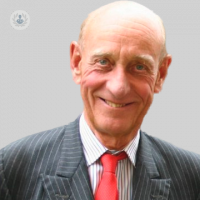Liver transplants: 50 years of progress
Written by:Since the first procedure was carried out just over 50 years ago, the UK has emerged as a world leader in liver transplants. In this article, early pioneer of liver transplants in the UK and towering figure in hepatology Professor Roger Williams CBE reflects on the progress over the last 50 years, and what’s in store for the future.

The last 50 years has seen incredible improvements in liver transplantation in the UK. Here is a summary of the state of liver transplantation today and what the future is likely to hold:
More transplants than ever
The past year alone has seen the number of transplants carried out in the UK increase to 1,014 with a 32% fall in the number of patients on the active waiting list. This was as a result of a greater number of organ donations.
Rates are likely to increase further with the passing of legislation allowing presumed consent in England, which is already in place in Wales. Another contributing factor is the use of extra corporeal machine preservation for improving the function of marginal organs. In 2017 some 16.3% of retrieved organs were not used on account of fatty change or ischemic damage.
Higher survival rates
Over the 50 years since the first successful cases in this country 1 the status of orthotopic (in normal position) liver grafts in adults has never been higher in terms of the quality of life obtained. Overall figures are currently running at over 90% one-year patient survival, with 5- and 10-year figures around 70%.
Rejection rates are low thanks to excellent immunosuppressive regimes based on Tacrolimus and Sirolimus, with a specific requirement for Prednisolone-only cases transplanted for auto-immune liver disease. Immunosuppression can only very occasionally be completely withdrawn, but most of the patients from 5 to 10 years onwards require only very low doses – reducing the likelihood of side effects from immunosuppressive medication.
New candidates for liver transplants
With the success of the direct antiviral agents against chronic HCV (hepatitis C) liver disease, the reduction in the number of transplants for this condition has meant an additional 600 organs being available for other transplant indications.
The places are likely to be taken up by an increased number of end-stage alcoholic cirrhosis related liver disease and NASH patients, often with complicating primary hepatocellular carcinoma (HCC). We are seeing this trend in the UK and worldwide as a result of increasing levels of alcohol consumption and rising obesity rates in adults.
However, these patients will not necessarily account for all newly available organ donation places. We are also likely to see some extension of transplantation to conditions that have not previously been considered suitable – including severely ill patients with “acute-on-chronic” liver failure. In these patients, the limited experience and data has shown remarkable survival rates compared with standard medical therapy.
References
- Calne RY, Williams R. Liver Transplantation in Man—I, Observations on Technique and Organization in Five Cases. Br Med J. 1968 Nov 30;4(5630):535-40.


